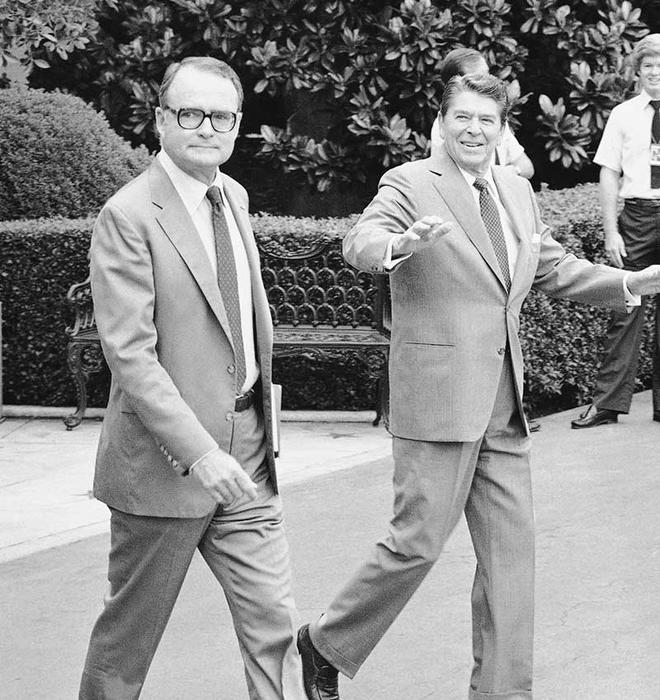
For all that he accomplished in government — including during two tours as head of the Environmental Protection Agency — William D. Ruckelshaus ’55 may be better known for something he didn’t do: fire the independent special Watergate prosecutor, Archibald Cox.
Ruckelshaus was deputy attorney general when President Richard Nixon ordered Attorney General Elliot Richardson to dismiss Cox. Richardson resigned instead. The task then fell to Ruckelshaus, who also refused to fire Cox and resigned. That evening, Oct. 20, 1973, became known as the Saturday Night Massacre.
Ruckelshaus, known as “Mr. Clean,” was called upon repeatedly during his career to bring respectability to his employers. His resignation from government, says his nephew John, a state senator, “reinforced how proud we were of his courage and always standing up for what’s right.”
Ruckelshaus was born into a politically prominent Republican family in Indiana. During his 1984 Woodrow Wilson Award address at Princeton, he recalled that his first two years in college “were spent on the mindless pursuit of pleasure, culminating in my being drafted into the Army just before I was to begin my junior year.” Only after his father’s funeral in 1961 did his mother reveal that his drafting was set in motion by his father, who worried about his son’s lack of focus.
In 1966, he was elected to the Indiana legislature and, in a first for a newcomer, was named majority leader. He stayed for just one term before challenging Democratic Sen. Birch Bayh. When Ruckelshaus lost, he joined the Nixon administration, impressing officials with his outreach to students protesting the Vietnam War.
He became the first administrator at the newly created EPA in 1970, where “he was able to take what had been disparate agencies and create a sense of mission,” says J. Patrick Dobel, a professor at the University of Washington. During his three-year tenure, the EPA banned the pesticide DDT, pushed big cities to cut their sewage discharges, and enforced air and water pollution laws. Char Miller, an environmental historian at Pomona College, says that “every day I can see the San Gabriel Mountains to the north of Los Angeles is a good day, and one key reason is because of William Ruckelshaus.”
In 1983, President Ronald Reagan brought Ruckelshaus, who was then a senior vice president at the Weyerhaeuser timber company, back to steady the EPA after a period of scandal. After leaving government in 1985, Ruckelshaus moved to the Pacific Northwest and later became CEO of trash hauler Browning-Ferris Industries, improving the company’s environmental record and breaking the New York City mafia’s stranglehold. A conservationist, he was appointed by Democratic Gov. Christine Gregoire of Washington to help create the Puget Sound Partnership, a group that works with stakeholders to improve the regional environment. “He was a moderate Republican who believed that environmental issues are not partisan and are critically important,” says Laura Blackmore, the partnership’s executive director. In 2015, President Barack Obama awarded Ruckelshaus the Presidential Medal of Freedom.
Recent developments in national politics saddened him. One legacy of the Saturday Night Massacre, he wrote in The Washington Post in 2018, was to accelerate political cynicism, eventually leading to “a president who will never admit he uttered a falsehood and a Congress too often pursuing only a partisan version of the truth.” In an interview with the Associated Press that year, he strongly criticized the Trump administration’s rollbacks of environmental protections and moves to give more environmental regulatory power to the states.
What the nation can use today, Ruckelshaus’ nephew says, “is his demeanor. He was so stoic and calm under pressure, and so good about bringing warring factions together and finding common ground.”
Louis Jacobson ’92 is senior correspondent for PolitiFact.
JULY 24, 1932 | NOV. 27, 2019





No responses yet